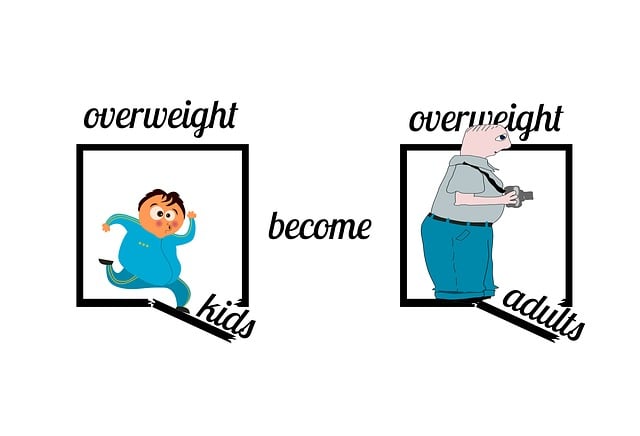Rybelsus, a prescription medication, offers a dual approach to long-term weight management by mimicking natural hormones to suppress appetite and enhance fat burning. Clinical trials demonstrate its effectiveness for significant weight loss when combined with diet and exercise, with mild side effects like nausea and dry mouth. Comparatively, Rybelsus has an advantageous side effect profile compared to other medications, making it a safer option. While promising, individual responses vary, and consultation with a healthcare professional is essential before use. Alternatives like Orlistat, Phentermine-topiramate, dietary supplements, behavior modification therapy, and bariatric surgery also exist for personalized weight management decisions.
“Discover the ins and outs of Rybelsus, a prominent weight management pill, in our comprehensive guide. We unravel its unique mechanism, delve into clinical trial results, and compare its side effects with other diet pills on the market. From potential benefits and drawbacks to alternative options, this article offers an unbiased analysis to help you understand if Rybelsus is right for your weight loss journey. Uncover the full picture of effective weight management with these essential insights.”
Understanding Rybelsus: An Overview of the Weight Management Pill

Rybelsus is a prescription-only medication designed for effective weight management. This innovative pill offers a unique approach to addressing obesity and related health concerns. By targeting specific hormones and metabolic pathways, Rybelsus helps individuals achieve significant weight loss over time. Its active ingredient, semaglutide, mimics a natural hormone that regulates appetite and blood sugar levels, leading to reduced calorie intake and enhanced fat burning.
This medication stands out in the market due to its long-acting nature, allowing for once-daily dosing. This convenience factor makes it an attractive option for those seeking sustainable weight management solutions. Clinical studies have demonstrated Rybelsus’s effectiveness in promoting substantial weight loss, making it a promising tool in the fight against obesity and its associated health risks.
How Rybelsus Works: Exploring Its Unique Mechanism

Rybelsus, a novel weight management medication, takes a unique approach to supporting healthy weight loss. Unlike traditional diets or exercise-only regimens, Rybelsus targets key hormones and physiological processes involved in appetite control and energy expenditure. Its active ingredient, semaglutide, mimics a natural hormone produced by the gut that helps regulate blood sugar levels. This mechanism not only suppresses appetite but also slows gastric emptying, leading to increased feelings of fullness and reduced calorie intake.
The drug’s innovative action extends beyond appetite suppression. Semaglutide has been shown to promote browning of white adipose tissue, converting it into a more metabolically active form that burns calories rather than storing them. This dual action—appetite control and enhanced fat burning—makes Rybelsus a promising option for individuals seeking effective weight management solutions. Its unique mechanism sets it apart from other medications, offering a potentially more holistic approach to achieving and maintaining a healthy weight.
Efficacy in Clinical Trials: Does It Live Up to the Hype?

In clinical trials, Rybelsus has shown promising results in weight management. Studies have demonstrated its effectiveness in helping individuals achieve significant weight loss when combined with a balanced diet and regular exercise. Participants in these trials experienced higher rates of successful weight loss compared to placebo groups, highlighting Rybelsus’s potential as a potent aid in the journey towards a healthier weight.
However, it’s crucial to remember that clinical trial outcomes may not always perfectly translate to real-world experiences. Individual responses can vary greatly, and factors like adherence to the medication regimen and overall lifestyle changes play significant roles in determining success with Rybelsus for weight management.
Comparing Side Effects: Rybelsus vs. Other Diet Pills

When comparing Rybelsus to other weight loss medications, understanding their side effects is paramount for consumers. Unlike many diet pills that can cause harsh and sometimes dangerous reactions, Rybelsus stands out for its relatively mild side effect profile. Common issues reported with Rybelsus include lightheadedness, nausea, and dry mouth—all of which are generally manageable and tend to subside as the body adjusts to the medication. In contrast, other weight management drugs may induce more severe symptoms such as heart palpitations, insomnia, or even mood alterations.
Moreover, Rybelsus’s side effects are consistent with those typically experienced in standard weight loss journeys, making it a more familiar and potentially less intimidating option. This is not to say that all diet pills are inherently dangerous; however, Rybelsus does offer a safer alternative for individuals seeking to manage their weight without exposing themselves to the risks associated with more potent medications.
Potential Benefits and Drawbacks: Weighing the Pros and Cons

Rybelsus, a novel weight management medication, offers potential benefits for those seeking to lose weight. Its unique mechanism of action, combining the effects of two established appetite-reducing drugs, may provide greater efficacy compared to standalone agents. Clinical trials have shown promising results in terms of significant weight loss and improved metabolic markers, making it a compelling option for some individuals. Additionally, Rybelsus could be advantageous due to its once-daily dosing, potentially improving adherence and patient convenience.
However, as with any medication, there are drawbacks to consider. One major concern is the potential for adverse effects, though clinical trials have generally reported acceptable safety profiles. Some users may experience gastrointestinal issues, such as nausea or constipation, which could impact their quality of life. Furthermore, Rybelsus may not be suitable for everyone; individuals with certain medical conditions, pregnant or breastfeeding women, and those taking other medications should consult healthcare professionals before use to avoid potential interactions or contraindications.
Alternative Options: Exploring Other Weight Loss Medications on the Market

In the realm of weight management, Rybelsus stands as a notable option for those seeking an effective solution to combat obesity. However, it’s essential to recognize that the market offers a plethora of alternatives designed to support healthy weight loss journeys. Beyond Rybelsus, various other medications have emerged, catering to diverse needs and preferences. Some popular options include prescription-only drugs like Orlistat (Xenical), which inhibits fat absorption, and Phentermine-topiramate (Qsymia), combining appetite suppression with reduced calorie intake. Additionally, non-prescription strategies such as dietary supplements and natural extracts are readily available, though their efficacy may vary.
Exploring these alternatives is crucial for individuals to make informed decisions based on their unique circumstances. Each medication or approach has its own set of benefits, potential side effects, and contraindications. For instance, some people might find success with non-pharmacological interventions like behavior modification therapy or bariatric surgery, which offer long-term lifestyle changes rather than quick fixes. By comparing Rybelsus to these alternatives, consumers can make choices that align best with their health goals and overall well-being.
